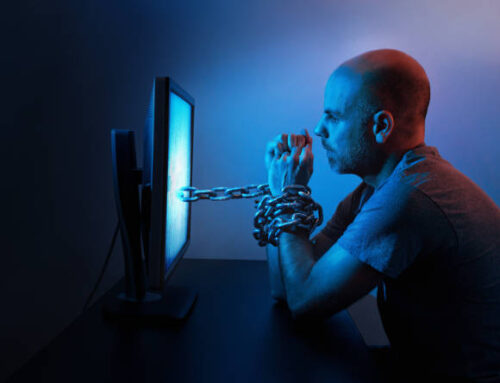With the pandemic having encouraged families to spend more time at home, many parents are now even more anxious about their children going out on their own. It can be a scary world out there, so naturally parents are going to be worried when they can’t physically be there with their children. To ensure the safety of teens and tweens, many parents have started using monitoring apps that enable them to know about their children’s activities, using GPA to track where they’ve been.
Yet while these apps can be very useful and offer parents some much-needed peace of mind, there are several legal and moral considerations that should be made before using them yourself.
How Does Cellphone Monitoring Work?
The most basic form of cellphone monitoring is offered with Apple’s iPhone family of devices. If a parent and child each have an iPhone and set them to share locations, either one can tap on the recipient’s name in a text message and see where they are on a map at any time. This means that if a child says they are going somewhere, their parents can easily verify their story.
Along with the iPhone’s sharing option, there are also separate apps for tracking a family member’s location: iPhone users also have the Find My Friends app, while Android users can turn to the location-sharing feature on Google Maps or apps like Life360. These services are useful for a number of reasons: if a child gets lost or is late on their way back to school, a parent could easily find them through one of these apps and go pick them up.
What’s The Legal Status of Cellphone Monitoring?
Before even considering the prospect of monitoring your child, it is important to know the legal status of the practice. After all, cellphone monitoring can be seen as a violation of privacy in many cases, so it’s vital that you know when it is or isn’t appropriate to monitor your kids’ cellphone usage. While it is legal to monitor your child, there are certain restrictions to this: generally speaking, it is fine to monitor your juvenile children. Also, if your child uses your phone, you can monitor their activity on it. However, once your child is legally an adult, you must ask permission in order to monitor your child, otherwise they have the right to sue you for breaching their privacy.
Why Do Some Object to Cellphone Monitoring?
So if cellphone monitoring is legal, why do some parents object to it? Well for one, several organizations feel that it denies children the degree of freedom needed to grow and develop. The UK’s Information Commissioner’s Office claims that “Children who are subject to persistent parental monitoring may have a diminished sense of their own private space, which may affect the development of their sense of their own identity.” Even the United Nations have commented on the matter, declaring that while cellphone monitoring is an acceptable practice for parents, it should be “proportionate and in accordance with the child’s evolving capacities.”
The takeaway is that cellphone monitoring is fine in of itself, but not at the expense of a child’s personal needs for privacy and desire to be trusted. While there is little in terms of research on how this type of monitoring can affect the relationship between parents and their children, there is enough circumstantial evidence to at least give some parents pause.
Why You Should Always Ask Your Child
If you ultimately decide to monitor your child’s phone, you should at the very least talk with them before doing so. While legally you don’t need your child’s permission to monitor their activities, it is still the best option if you want to maintain their trust and understanding. Even if you have the best of intentions, children can feel very uncomfortable about the idea of you monitoring them, especially if you don’t tell them about it or don’t ask for their permission. Younger children are less likely to object, but older kids, particularly tweens and older teenagers, can see this type of monitoring as a violation of privacy and a lack of trust on the part of their parents.
So before activating a tracking app, have a conversation with your child about your reasons for wanting to monitor their phone, how it can keep them safe, and why using it doesn’t mean that you don’t trust them. You should show them how the tracking software works and how much you can actually see, as this can help them feel a bit more comfortable about it and make them feel like they have a degree of control. Most importantly, remember why you’re monitoring their phone in the first place. As they get older and more responsible, you can start to reduce how much you monitor them, which has the added benefit of instilling greater self-esteem and self-confidence in your child, demonstrating that you recognize their increasing maturity.
Not every parent needs to monitor their child’s activity outside of the house and cellphone monitoring can be a tricky prospect, but so long as you respect your child’s personal boundaries and give them room to prove their maturity and trustworthiness, you can approach the practice in a way that keeps kids safe while leaving room for them to grow and develop.





